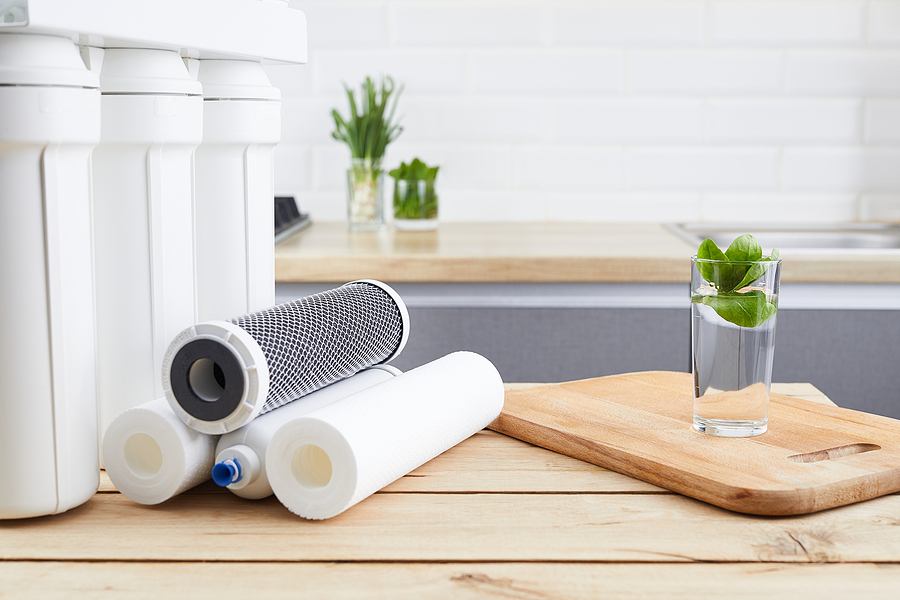
October 19/2022
How Do Water Filtration Systems Work?
Your home water system can be a source of clean, healthy water all year round. But in order to enjoy that benefit, it’s important to make sure you have the right filtration system in place. The type of filtration system you use depends on a variety of factors. That includes whether you’re looking for better-tasting drinking water or to reduce contaminants in your water supply. A dependable plumber from Mr. Rooter Plumbing can help determine which water filtration system is best for you. We will also consider your water heater and if a water heater repair is needed to install the appropriate system.
What Is a Water Filtration System?
A water filtration system is a plumbing device that purifies water for drinking and cooking through filtering. They remove organic debris and particles from the water as well as improve the taste of drinking water by removing unpleasant odors and tastes from it. They also remove bacteria from the water and ensure you don't ingest any dangerous chemicals, metals, or pesticides when using the filter. Water filtration systems are designed with different capabilities to serve differing needs in accordance with how many contaminants you want to be removed from your water.
Types of Water Filtration Systems
There are three main types of water filtration systems: Filtration pitchers, under-the-sink water filters, and whole-house water filtration systems.
Filtration Pitchers
Water filtration pitchers are a convenient way to filter your drinking water. They're also extremely affordable and easy to use. They sit on the countertop and filter out contaminants like chlorine, fluoride, sediment, and other impurities. They don't need to be installed or connected to a faucet, making them portable and easy to use.
Two types of water filtration pitchers are carbon block and reverse osmosis (RO). Carbon block filters use granular activated carbon (GAC) that absorbs organic compounds in the water. RO filters use membranes with microscopic pores that allow water molecules through but not contaminants such as chlorine or lead.
Carbon Block Filters
Carbon block filters are made from activated charcoal, which is highly porous carbon heated until it becomes black or gray in color. They can hold many contaminants within their pores, including chemicals like pesticides or endocrine disruptors. Some carbon blocks also have silver or copper added to protect against bacteria growth inside the filter cartridge.
Reverse Osmosis
Reverse osmosis takes place in three stages:
- Stage 1 - Flocculation: In this step, dissolved particles in the water attach to other particles larger than themselves. This causes them to form larger particles that are easier for membranes to filter out later in the process.
- Stage 2 - Sedimentation: These larger particles sink to the bottom of tanks for removal during this stage of reverse osmosis filtration.
- Stage 3 - Deionization: During this final stage, any remaining traces of impurities are removed from your drinking water using ion exchange resins or ion exchange membranes (similarly, as occurs in nature).
Under-The-Sink Water Filters
Under-the-sink water filters are among the most common types of water filtration systems. They use various methods and technologies to filter water, including activated carbon, powdered activated carbon, reverse osmosis, and ultraviolet light.
Under-the-sink water filters are typically installed underneath a kitchen sink or bathroom vanity. They connect to existing plumbing through a faucet adapter or diverter valve, which allows you to switch between filtered and unfiltered water at any time.
Whole-house Water Filtration Systems
Whole-house water filtration systems are large systems that can be installed in the basement of a home. They usually contain a tank, which stores the incoming water, and filters that remove contaminants. The filtered water is then pumped into your home's plumbing system.
The main advantage of whole-house water filtration systems is that they can provide you with high-quality drinking water at all times. This is especially important if you live in an area where the tap water contains high levels of chlorine or fluoride or if your municipality adds these substances to the water supply for disinfection.
Whole-house filtration systems are also useful for homes with private wells and those whose municipal supplies come from rivers or lakes that are polluted by agricultural runoff. Whole-house filtration systems can remove chlorine and other chemicals from your drinking water supply if they're in high enough concentrations.
Mr. Rooter Plumbing
When it comes to choosing a water filtration system, Mr. Rooter Plumbing will help you consider your needs. Do you want to take regular long showers? Or is water conservation a better approach for you? Are any specific contaminants that need to be filtered out of your water supply? It all depends on what's important to you as the end user. Our trusted plumbers can help you determine which option is best.




